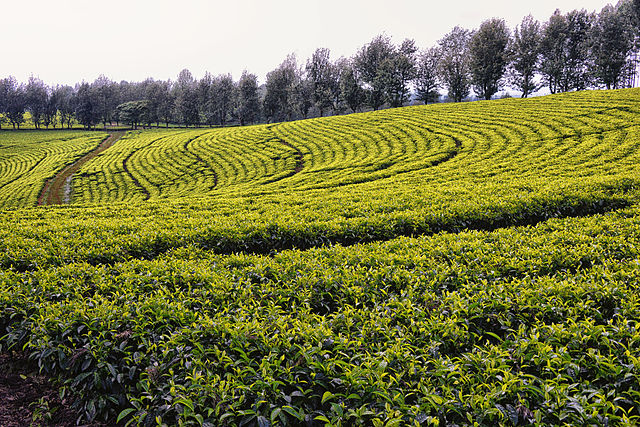The nonprofit Heifer International on July 23, 2025 aired the voices of smallholders farmers towards a global food systems transformation. During which, farmer interviewees suggested solutions ahead of the UN Food Systems +4 Stocktaking Moment on July 27-29 in Addis Ababa, Ethiopia. During the actual summit, the UN Deputy-Secretary General Ms Amina J. Mohammed labeled transforming food systems “one of the greatest solutions.” This way it recalls the United Nations Conference on Trade and Development (UNCTAD)’s 2023 report on leveraging agricultural supply systems.
Selina Wamucii referenced a report by a Heifer International communication representative on how farmers are approaching food systems transformation.
In preliminary, the report reads that: “more than 700 million people faced hunger in 2023, while food systems contribute around a third of global emissions and 80 per cent of global deforestation.”
Besides, “smallholder farmers operating on two hectares or less produce around a third of the world’s food, and as much as 80 per cent in some countries.”
The report then goes on to offers solutions by transformative farmers from across the developing world.
Poultry Solutions
Some of these solutions are by Shewaye Fentae, a smallholder poultry farmer from Weyetu village in the Borcha district, Sidama, Ethiopia.
“The price of poultry feed continues to rise, now exceeding 6,000 birrs — approximately $44 — per 100 kilograms,” she said. “Without access to affordable feed and better opportunities to sell our eggs, the progress we’ve made is at serious risk.
“Through improved poultry management practices, better hygiene, and participation in farmer training, I continue to learn, collaborate with others in my community, and look forward to exploring ways to increase my income by keeping my chickens healthy with better hygiene and housing. That’s how we survive.
“What I and others like me need is reliable and affordable inputs, as well as access to fair markets to sell the eggs we harvest. We need leaders at the UN Food Systems Summit to understand the gaps that hold us back.
Dairy Transformations & Co-ops
Another farmer is Iris Núñez, who spoke during a recent Global Food Systems Summit that Heifer International organized in Honduras. The summit featured growers from Ecuador, Guatemala, Honduras, Mexico and the United States.
According to Núñez, a leading dairy producer and community leader, “climate change has made everything more difficult.” She added that “extended droughts dry out our crops; floods destroy our pastures. We’ve lost livestock to hurricanes Mitch, Eta, and Iota. I remember evacuating my animals in a truck, paying to feed them far from home – an expensive but necessary choice.
“Despite these challenges, we persevere. We’ve introduced improved pasture varieties and continue to adapt. But we are still facing systemic barriers: high costs of feed and medicine, poor infrastructure, and lack of market support.
“My hope is for the state to recognize the needs of farmers at the UN Food Systems Summit and commit to improving the infrastructure and support we need. We need investment in education to inspire future generations to value and innovate in the agricultural sector.”
Tulsi Thapa, President of the Bihani Social Entrepreneurs Women’s Cooperative in Nepal, added: “progress starts with agriculture—and farmer-friendly cooperatives are key to driving it. When women farmers have access to resources, markets, and decision-making power, entire communities are transformed. However, to truly scale this impact, global food systems must recognize and invest in grassroots leadership.”
Heifer International’s Take
Heifer Intl. also featured its voice to the debate via Surita Sandosham, the President and Chief Executive Officer: “during Heifer’s recent week-long summit, we emphasized the importance of listening—truly listening—to the voices of farmers.
“We heard from farmers that to be effective partners in transforming food systems, we must respect ancestral practices, provide training and capacity building, and walk alongside them in this journey. These are important lessons for the UN Food Systems Summit stocktaking.”
Thus concluded the pre-UN Food Systems Summit’s solution-based views in farmer-friendly tones.
About Heifer International
Since 1944, Heifer International has worked with more than 52 million people around the world to end hunger and poverty in a sustainable way, while caring for the Earth. Heifer currently operates in 19 countries across Africa, Asia, and the Americas, including the United States, supporting farmers and food producers to strengthen local economies and build secure livelihoods that provide a living income. For more information, visit https://www.heifer.org.
About the UN Food Systems Summit
The UN Food Systems Summit is a contiguous stocktaking process that began in 2021. In its July 27-29 2025 stocktaking meeting in Addis, it hosted above 3,000 stakeholders, from indigenous communities to civilians and governments. Since 2021, the summit has seen over 130 nations develop National Pathways to food systems transformation. Its aim is to insure food security in a changing climate.
